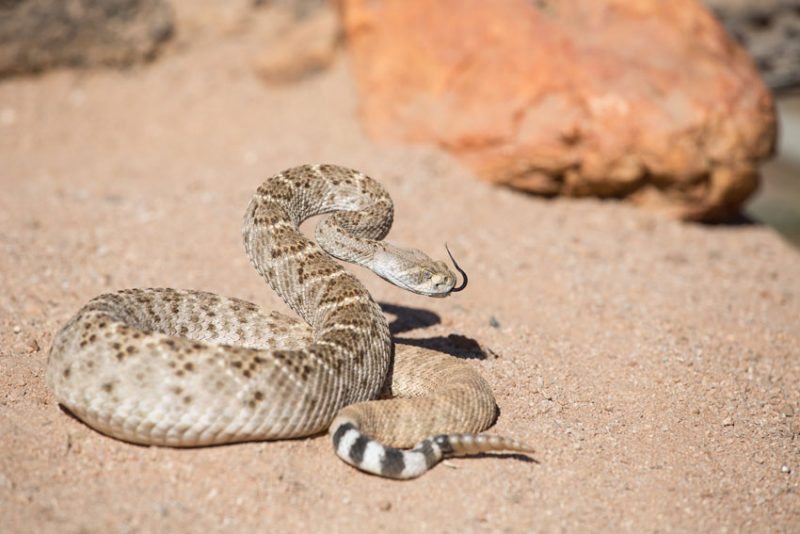YOUTH: How to Stay Safe from Rattlesnakes in the Regional Parks
As the weather heats up, rattlesnakes become more active in many of our parks, their natural habitat. They like to explore when the weather gets warm which can lead to more encounters with humans and dogs. The East Bay Regional Park District is advising that the public take snake safety precautions when visiting Regional Parks.
Safety Tips for Visiting Regional Parks
- Always hike with a friend so you can help each other in case of emergency.
- Look at the ground ahead of you as you are walking.
- Look carefully around and under logs and rocks before sitting down.
- Avoid placing your hands or feet where you can’t see clearly.
- Check the area around picnic tables, campsites, and barbecues before using them. If you encounter a rattlesnake in these areas, notify park staff.
- Keep pets on the designated trails and away from snakes if they see one.
- Bring plenty of water for yourself and your pets as many parks do not have a direct water supply.
What to Do If You See a Rattlesnake
Leave it alone – do not try to capture or harm it. All park wildlife is protected by law. If you see a snake on a trail, wait for it to cross and do not approach. Then move carefully and slowly away.
What to Do If Bitten by a Snake
- If bitten by a rattlesnake, stay calm and send someone to call 911. Remain calm by lying down with the affected limb lower than the heart. Do not waste precious time on tourniquets, “sucking,” or snake bite kits. If you are by yourself, walk calmly to the nearest source of help to dial 911. Do not run.
- If bitten by any other kind of snake, wash the wound with soap and water or an antiseptic and seek medical attention.
- If you are not sure what kind of snake bit you, check the bite for two puncture marks (in rare cases one puncture mark) associated with intense, burning pain. This is typical of a rattle snake bite. Other snakebites may leave multiple teeth marks without associated burning pain.
Snakes are an important resource in the natural environment. They are prime controlling agents of rodent, insect, and other reptile populations. They must be enjoyed from afar and left where they are found. It is illegal to collect, kill, or remove any plants or animals from the East Bay Regional Park District. Please help us to protect wildlife and their environment for present and future generations. Additional information is available at www.ebparks.org/parks/safety/#Snakesor download a PDF version of our Common Snakes.
The East Bay Regional Park District is the largest regional parks system in the nation with 73 parks, 55 miles of shoreline, and 1,250 miles of trails for hiking, biking, horseback riding, and natural learning. The Park District receives more than 25 million visits annually throughout Alameda and Contra Costa counties in the San Francisco Bay Area.


